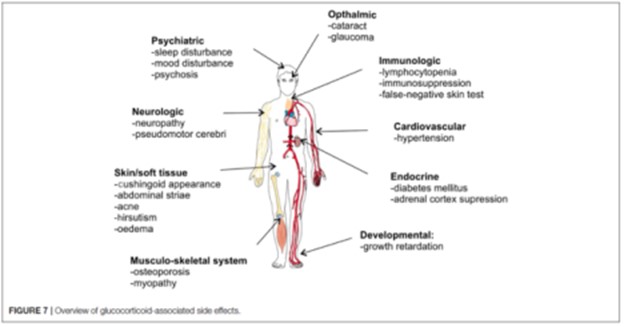A patient, age 23, underwent a rhinoplasty 6 hours ago. After administering his pain medication, the nurse notes that he is swallowing frequently. What is the most likely cause of the swallowing?
Bleeding posterior to the nasal packing.
Oral dryness caused by nasal packing.
An adverse reaction to the analgesic.
A normal response to the analgesic and surgery.
The Correct Answer is B
Rhinoplasty is a surgical procedure performed on the nose, and it often involves the placement of nasal packing to control bleeding, support the nasal structures, and promote healing. Nasal packing can cause mouth breathing and oral dryness, which can lead to increased swallowing as the patient tries to alleviate the discomfort.
While bleeding posterior to the nasal packing is a potential complication of rhinoplasty, it typically presents with other symptoms such as active bleeding, nasal discharge, or changes in vital signs. Without additional information or signs of active bleeding, it is less likely to be the cause of the patient's frequent swallowing in this scenario.
An adverse reaction to the analgesic is possible, but it would typically present with other symptoms such as allergic reactions (rash, swelling, difficulty breathing) or gastrointestinal symptoms (nausea, vomiting). In the absence of these symptoms, an adverse reaction to the analgesic is less likely.
Lastly, a normal response to the analgesic and surgery would not typically manifest as frequent swallowing. While pain medication can cause side effects, such as drowsiness or nausea, increased swallowing is not a common response.
Nursing Test Bank
Naxlex Comprehensive Predictor Exams
Related Questions
Correct Answer is B
Explanation
An increased serum potassium level, also known as hyperkalemia, can have adverse effects on the electrical conduction of the heart, potentially leading to life-threatening cardiac dysrhythmias. Therefore, it is crucial to assess the patient's pulse rate and rhythm promptly to identify any abnormal cardiac activity.
Assessing the oxygen saturation (oxygen stats), respiratory rate and depth, and deep tendon reflexes are also important assessments, but they are not the priority in this case. Hyperkalemia primarily affects cardiac function, and prompt identification of any potential cardiac rhythm disturbances is essential to prevent further harm.
Correct Answer is ["A","B","C","D","E","F"]
Explanation
Ensure the client receives adequate amounts of fluids: This is important to maintain hydration and thin respiratory secretions, making it easier for the client to cough and clear the airways. Check the client's mouth for stomatitis: Methylprednisolone can increase the risk of developing oral candidiasis (thrush) or stomatitis, which can cause discomfort and interfere with oral intake. Regular mouth checks can help identify these conditions early for appropriate management. Assess the client's mental status: Pneumonia, particularly in individuals with pre-existing lung disease like COPD, can lead to hypoxemia, which may affect mental status. It is important to monitor the client's mental status, as changes in cognition or confusion can be indicators of hypoxia and require prompt intervention.
Monitor for signs of hypokalemia: Methylprednisolone, like other corticosteroids, can cause electrolyte imbalances, including hypokalemia (low potassium levels). Hypokalemia can have various effects on the body, including muscle weakness and cardiac dysrhythmias. Regular monitoring of potassium levels and signs of hypokalemia is important for timely management. Monitor the client's blood glucose levels: Methylprednisolone can increase blood glucose levels, particularly in individuals with pre-existing diabetes or impaired glucose tolerance. Regular monitoring of blood glucose levels is necessary to ensure proper glycemic control and prevent hyperglycemia-related complications.
Monitor the client's blood pressure for hypotension: Corticosteroids like methylprednisolone can cause fluid retention, leading to an increase in blood pressure. However, sudden withdrawal of corticosteroids can result in adrenal insufficiency and hypotension. Close monitoring of blood pressure is necessary to identify any significant changes and adjust the medication regimen accordingly.

Whether you are a student looking to ace your exams or a practicing nurse seeking to enhance your expertise , our nursing education contents will empower you with the confidence and competence to make a difference in the lives of patients and become a respected leader in the healthcare field.
Visit Naxlex, invest in your future and unlock endless possibilities with our unparalleled nursing education contents today
Report Wrong Answer on the Current Question
Do you disagree with the answer? If yes, what is your expected answer? Explain.
Kindly be descriptive with the issue you are facing.
